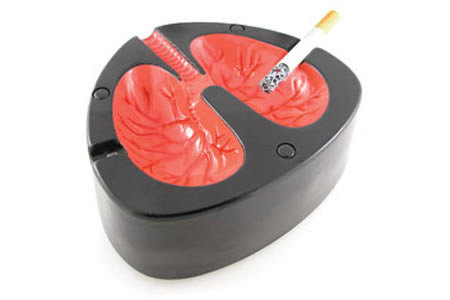It is abundantly clear that the deliberately flawed laws are not working here in Hong Kong.
The onus to keep indoor work places clear of smokers HAS to be placed on the premises managers and licensees.
The Tobacco Control Office is deliberately hopelessly understaffed.
Macau has 70 officers for 544,000 population + tourists whilst HK has just 99 officers for 7 million + 2.5 million tourists per month.
There are 11,000 restaurants and more than 5,000 liquor licensed premises plus mahjong , bath houses, saunas, upstairs premises, bus stations etc to cover.
The number of smoking fixed penalty tickets issued to date is pitiful despite allowing other Government departments (who have no interest in doing so) to issue tickets. We proposed in Legco 18 months ago to have an Auxiliary group similar to the Auxiliary police to expand the enforcement capability.
The press has been full of complaints from law abiding premises who are losing out on the uneven playing field to premises which ignore the law – actually the premises do not ignore the law since there is no law obliging them to enforce the anti smoking laws. This is an absolute joke. All overseas jurisdictions place the onus on premises’ owners and enforce fines then loss of licence to trade for repeat offences. The big stick works.
News
Dutch cafes remove ashtrays from tables once more as law is set to tighten
Tony Sheldon
1 Utrecht
The Dutch Supreme Court has closed a legal loophole that resulted in smoking returning to many of the country’s 10 000 smaller cafes after enforcement of the tobacco law was partially suspended last summer.
In a landmark judgment the court overturned the decision of two lower appeal courts and ruled that there was “sufficient basis” in the tobacco law for a smoking ban to apply to smaller cafes that do not employ staff. The ban on smoking in enclosed public spaces in the 2008 Tobacco Law is therefore valid for the whole hospitality sector.
The decision comes as figures show evidence of a “significant increase” in smoking in all cafes in the last nine months of 2009.
The government suspended the smoking ban for cafes without staff in July after separate appeal courts in Den Bosch and Leeuwarden had ruled in favour of two small cafes (BMJ 2009;339:b2824, doi:10.1136/bmj.b2824). They ruled that “there is no clear obligation in the text of the law for a hospitality industry business without personnel to establish a smoking ban.”
The public prosecution service appealed the cases to the Supreme Court, which overturned the rulings, arguing that the part of the law with the words “smoking ban” should be “read in connection” with other parts. The absence of a specific reference to the part of the law containing the words “smoking ban” was therefore not relevant.
Both cases will be referred back to the Arnhem court, where the cafes are set to contest the ruling, arguing that it contravenes the principle of equality as, unlike larger cafes, smaller ones are unable to provide separate smoking rooms permitted under the law.
Meanwhile, figures from the Food and Consumer Product Safety Authority, which polices the ban, show that between spring 2009 and winter 2010 the proportion of cafes without staff that allowed smoking doubled to more than 40%. Among larger cafes with staff the proportion allowing smoking rose to one in four, despite more than 11 000 inspections between July and December.
The antismoking lobby group Stivoro said that the judgment was a good day for public health. Its director, Lies van Gennip, said, “We are very happy with it. We were getting signals that not just small cafes but larger ones too with staff were putting ashtrays back on the tables. Now it is clear that that is not the intention.”
Stivoro is urging the immediate return of inspection and enforcement of the ban in smaller cafes but accepts that only 200 inspectors check some 10 000 small cafes.
Onno van Schayck, professor of preventive medicine at Maastricht University, believes that the government chose to legislate on protection of employees rather than on public health as it fitted better with the Netherlands’ “famous” liberal thinking.
“We can’t go on in this way. We are one of few countries in the Western world where smoking has increased. The government has a legal obligation to protect its people,” he said.
The percentage of Dutch people who smoke rose last year from 27% to 28%, showed a study carried out for Stivoro.
Cite this as: BMJ 2010;340:c1348
Relevant Article
Legal loophole sees hundreds of Dutch cafes escape smoking ban
Tony Sheldon
BMJ 2009 339: b2824. [Extract] [Full Text]
